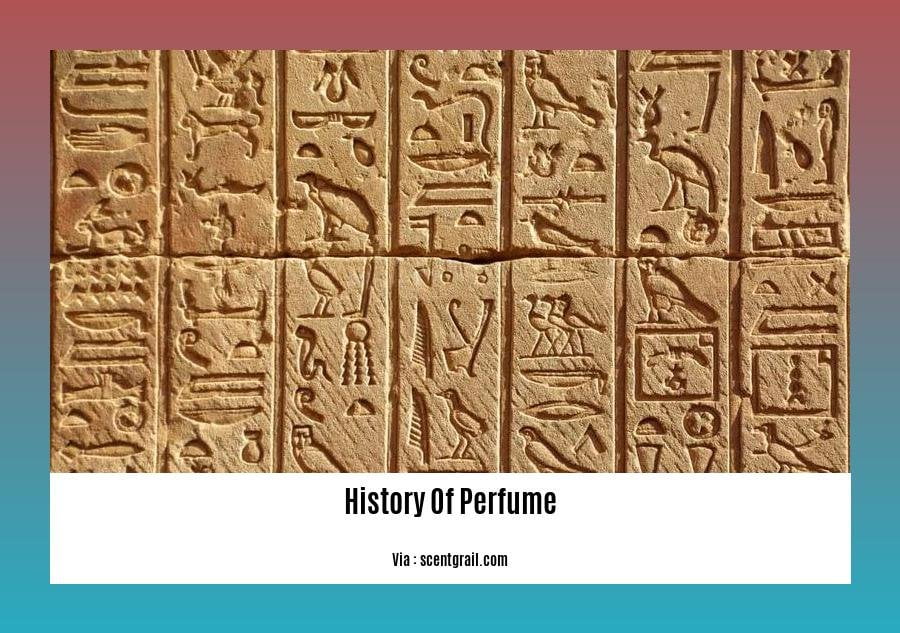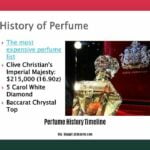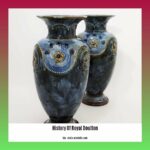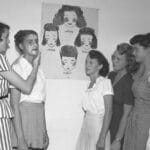Embark on a captivating journey through the annals of scent in [The Comprehensive Guide to the History of Perfume]! This definitive timeline unravels the captivating story of fragrance, from its ancient origins to its modern-day allure. Discover the pivotal moments that shaped the art of perfumery, from the earliest aromatic blends to the iconic creations that have captivated generations. Trace the evolution of perfume through the ages, exploring its role in religious rituals, royal courts, and the pursuit of beauty. Join us as we delve into the intriguing history of perfume, uncovering the secrets of an art form that has enchanted humanity for centuries.
Key Takeaways:
- Perfume-making has ancient origins in Mesopotamia.
- Natural oils were extracted from fragrant materials and used for body anointing and rituals.
- The term “perfume” originates from the burning of incense.
- Perfume-making spread from Mesopotamia to Egypt, Rome, Greece, Persia, and Europe.
History of Perfume
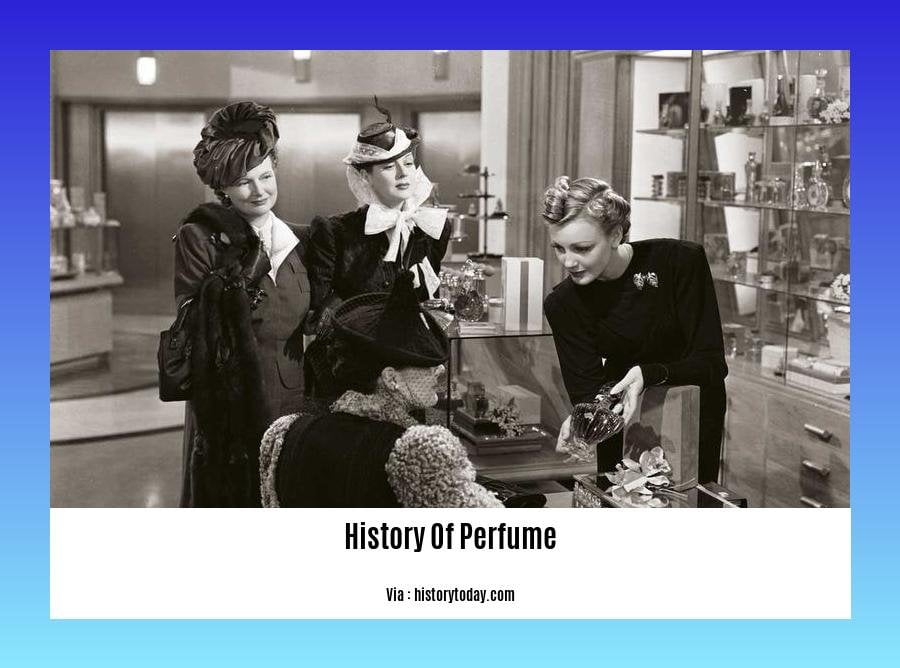
Fragrances have captivated humans for millennia, leaving an indelible mark on our cultures and civilizations. The history of perfume is a journey through time, where we explore the evolution of scents from their humble beginnings to the sophisticated creations of today.
Ancient Origins
The earliest traces of perfume-making can be traced to ancient Mesopotamia around 3500 BC. The Mesopotamians discovered that certain plants and flowers released fragrant oils when crushed or heated. These oils were used in religious ceremonies, as cosmetics, and for medicinal purposes.
Over time, perfume-making spread to other civilizations, including Egypt, Greece, Rome, Persia, and China. Each culture developed its unique techniques and fragrances, using a variety of natural ingredients such as flowers, spices, and herbs.
The Golden Age of Perfumery
The Middle Ages witnessed a flourishing of perfume-making in Europe. Arab alchemists played a pivotal role in refining techniques and expanding the range of available scents. By the Renaissance, Italian cities like Florence and Venice had become centers of perfume production.
Modern Perfumery
The 19th century marked a turning point in the history of perfume. The development of synthetic fragrances allowed perfumers to create scents that were more stable and affordable than natural oils. This led to the emergence of modern парфюмерия, with its iconic brands and international reach.
Today, perfume continues to evolve, with perfumers constantly experimenting with new ingredients and technologies. From classic floral scents to avant-garde creations, the world of fragrances remains a testament to the enduring power of scent.
If you want the perfume history timeline, You can learn about the fragrance origin and perfume making history through the links.
History of Perfume in France
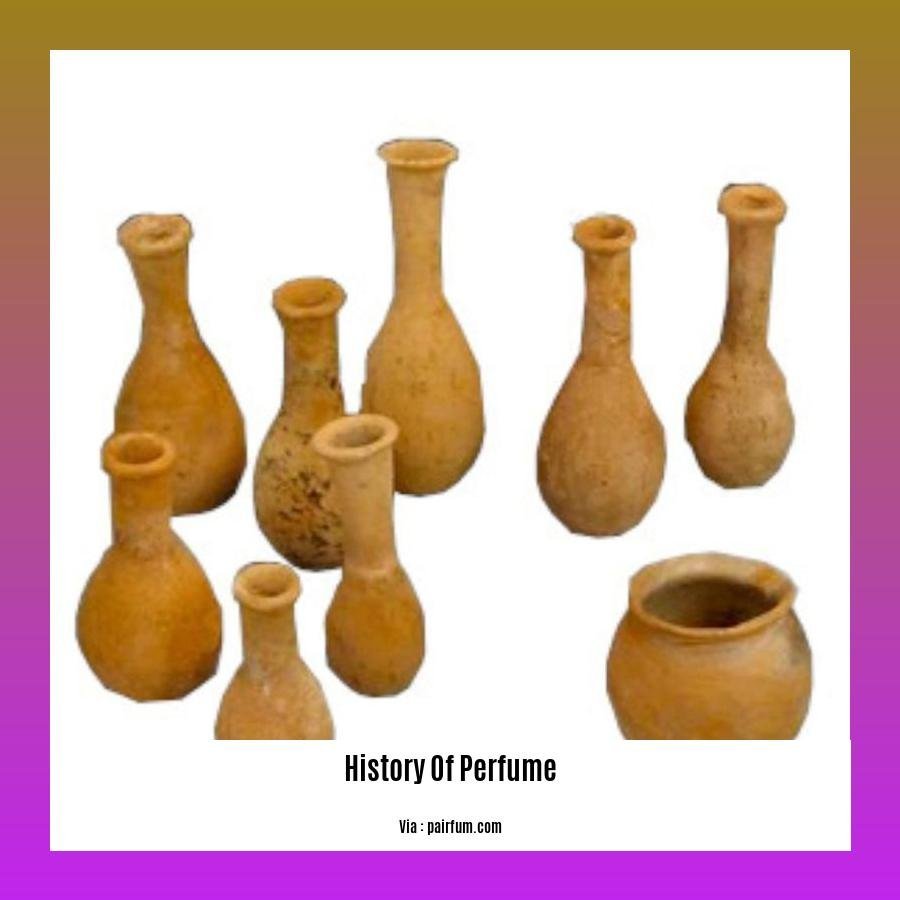
As we delve into the fragrant annals of French perfume, brace yourself for an enthralling journey that intertwines history, culture, and the relentless pursuit of olfactory delight.
Key Takeaways:
- France’s perfume legacy traces back to Catherine de Medici, who introduced the art to the royal court in the 16th century.
- Louis XV’s patronage fueled the development of exquisite fragrances.
- Grasse, blessed with abundant jasmine and other fragrant flowers, emerged as the “perfume capital of the world.”
- French perfumery became synonymous with sophistication and elegance, setting the global standard.
The Dawn of French Fragrance
Catherine de Medici, hailing from the esteemed House of Medici known for its patronage of the arts, brought Italian perfumers to France in the 16th century. This infusion of expertise ignited a passion for perfumery at the French court.
The Royal Patronage of Louis XV
With Louis XV’s ascent to the throne in the 18th century, French perfumery ascended to new heights. Louis XV’s lavish patronage encouraged perfumers to experiment with new scents and techniques, transforming fragrance into an art form.
Grasse: The Birthplace of Modern Perfumery
Grasse, nestled amidst the sun-drenched hills of Provence, became a sanctuary for perfume creation. Its abundance of fragrant ingredients, particularly jasmine, combined with the need to mask the pungent odor of leather, fostered an environment where the art of perfumery flourished.
France: The Perfume Mecca
Centuries of expertise and innovation have solidified France’s position as the undisputed capital of perfumery. French perfumes are renowned for their quality, sophistication, and unparalleled allure. The French approach to perfumery, with its focus on natural ingredients and meticulous craftsmanship, has set the global standard for excellence.
Citation:
French Waterways. (n.d.). French Perfume Guide | History of French Perfume. Retrieved from
**History of Perfume and Cologne**
Buckle up, folks! Let’s take a fragrant dive into the captivating history of perfume and cologne. This aromatic journey will unveil the rich past of scents that have seduced and enchanted humanity for centuries.
Key Takeaways:
Ancient Roots: The roots of perfumery can be traced back to ancient Mesopotamia, where the world’s first recorded chemist, Tapputi, crafted fragrances around 1200 BCE.
Global Spread: The art of perfume-making flourished in Persia, Arabia, and Rome, each culture leaving its unique aromatic imprint.
Steam Distillation: Islamic scholars refined fragrance extraction techniques through steam distillation, revolutionizing the production of concentrated scents.
European Influence: In the 14th century, perfumery knowledge reached Europe, where the French took it to new heights.
America’s Contribution: French explorers introduced colognes and scented water to the Americas, where they became popular personal care items.
Notable Figures:
Tapputi: Mesopotamia’s renowned perfume maker, credited with developing early fragrance formulations.
Sassanian Emperors: Persian rulers renowned for their love of rose water, which they used as a luxurious perfume.
Conclusion:
The history of perfume and cologne is a testament to human ingenuity and the enduring allure of scents. From humble beginnings in ancient Mesopotamia to the sophisticated creations of modern perfumers, fragrances have played a vital role in our cultural, religious, and personal lives. So, next time you indulge in your favorite fragrance, take a moment to appreciate its rich history and the countless artisans who have contributed to its timeless appeal.
Citation:
FAQ
Q1: Where and when did perfume making originate?
A1: Perfume making originated in ancient Mesopotamia around 1200 BCE, with Tapputi being the world’s first recorded chemist and perfume maker.
Q2: What is the etymology of the term “perfume”?
A2: The term “perfume” comes from the Latin phrase “per fumus,” meaning “through smoke,” likely referring to the burning of incense.
Q3: Which ancient civilization played a significant role in the development of perfume?
A3: Ancient Egypt is credited with inventing perfume for personal use and embalming, and they developed sophisticated techniques for extracting natural oils from fragrant materials.
Q4: How did Catherine de Medici influence the history of perfume in France?
A4: Catherine de Medici, the Italian-born Queen of France, introduced the art of perfume-making to the French court in the 16th century, which sparked a passion for fragrances that continues to this day.
Q5: What region in France is renowned for its perfume industry?
A5: Grasse, located in southeastern France, is known as the “perfume capital of the world” due to its access to a wide variety of perfume ingredients and its traditional expertise in the art of perfumery.
- Mastering Leader in Spanish: The Complete Guide - April 19, 2025
- Uncovering Surprising Parallels: England Size Compared to US States - April 19, 2025
- Old Mexico Map: Border Shifts 1821-1857 - April 19, 2025
